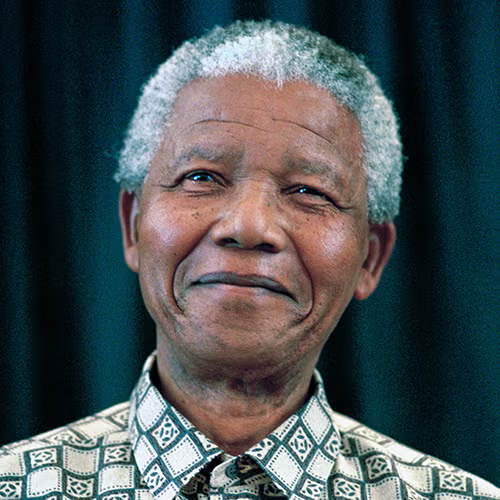US: No evidence USAID finances Boko Haram as US Embassy refutes allegation
There has been commotion threatening peaceful international relations between Nigeria and the United States of American over the financing of one of the most dreadful and deadliest terrorist groups in the world−Boko Haram.
The United States, refuting the claim made by political class of Nigeria, through her ambassador to Nigeria, said there is no evidence established to back the claim.
According to the United States Ambassador to Nigeria Richard Mills, there has not been any evidence established to corroborate the claim that the United States Agency for International Development (USAID) is financing Boko Haram or any other terrorist group in Nigeria.
US: No Evidence USAID Finances Boko Haram
This statement was made following a meeting with the Nigeria Governors Forum (NGF) in Abuja on Wednesday night, noting that no other nation in the world opposes and condemns Boko Haram or any other terrorist group more strongly than the United States.
Mills assures that forum that if any evidence is found against USAID, the US government is ready to work with Nigerian government to look into it.
It can be recalled that on Friday 13th, the United States Congressman Scott Perry alleged that USAID was funding terrorist groups, including Boko Haram.
Boko Haram is a terrorist group in Nigeria and other neighboring countries, founded in 2002 by Mohammed Yusuf.
The group’s aim was to project Sunni Islam and eradicating Shia Islam in Nigeria.
Over the course of the years, the group’s terror activities have claimed many Nigerians’ lives, billions of Naira worth of property has been damaged, and various and high number of families and homes have been displaced.
US: No Evidence USAID Finances Boko Haram
Perry, a Pennsylvania Republican Congressman, issued this statement amidst first hearing of the Subcommittee on Delivering on Government Efficiency.
The session was tagged, “The War on Waste: Stamping Out the Scourge of Improper Payments and Fraud,” aimed at alleged mismanagement of taxpayer funds.
“Who gets some of that money? Does that name ring a bell to anybody in the room?
Because your money, your money, $697 million annually, plus the shipments of cash funds in Madrasas, ISIS, Al-Qaeda, Boko Haram, ISIS Khorasan, terrorist training camps. That’s what it’s funding,” he said.
Subsequently, the Senate called on the National Security Adviser Nuhu Ribadu, along with the heads of the National Intelligence Agency and the Defense Intelligence Agency, to look into allegations of USAID funding of terrorism in the country.
Reacting to a question, the US Ambassador said that the US has strong policies to impede USAID or any other US aid from being diverted to fester terrorist groups like Boko Haram.

“Let me be clear—there is no friend of Nigeria stronger in condemning Boko Haram’s violence and disregard for human life than the United States. We have designated Boko Haram as a foreign terrorist organization since 2013, blocking the group from transferring assets to the US and allowing us to arrest and seize its members, he said.
US: No Evidence USAID Finances Boko Haram
“We cooperate in investigations with the Nigerian government. I can assure you that we have strict policies and procedures to ensure that USAID funding or any other US assistance, whether from USAID, the Department of Defense, or the State Department, is not diverted to terrorist groups like Boko Haram.
“There is absolutely no evidence of such diversion, and if we ever had evidence that any programme funding was being misused by Boko Haram, we would immediately investigate it with our Nigerian partners.
“So, when it comes to Boko Haram, the United States stands with Nigeria in wanting to rid this country of the scourge that this organization represents.”
He demystified that the President Donald Trump’s administration had no cut aid but put it on hold for 90 days to groom ways to make it more effectual.
“No assistance has been cut yet, and no decisions have been made about the future of our assistance, Mills clarified.
“In fact, US Secretary of State, Marco Rubio, has said that this is not about ending foreign assistance to our partners like Nigeria.
“It’s about making our assistance more effective and aligning it with US government policies and interests.
“That’s what this 90-day pause is for. However, there are waivers for life-saving assistance, such as support for HIV patients, maternal and child nutrition, and internally displaced people. So that continues. In 90 days, we will know where we stand.”
As regard other matters looked into with the governors from the thirty-six states of Nigeria, the US Ambassador stated that he had highlighted the embassy’s vision for the future of the US-Nigeria bilateral relationship.
US: No Evidence USAID Finances Boko Haram
“I explained to them that we are going to focus on four key priorities in the coming years. The first is improving the business environment to increase trade and investment between the United States and Nigeria, he stated.
“Second, a renewed focus on improving transparency and accountability in Nigeria, fighting corruption, and empowering Nigerian voices advocating for more transparency.
“Third, we want to be more engaged at the subnational level, at the state level, and with local governing authorities.
“I believe the embassy needs to engage more in this area as we develop our programs and assistance.
“Lastly, we discussed our health care programmes, which are a large part of US assistance to Nigeria.
“As these programmes succeed—such as reducing HIV cases and eradicating polio—we want to ensure their sustainability and transition them to the Nigerian government at the federal and state levels.”
Mills claimed that the purpose is to ensure the sustainability of these health programmes and forward them to Nigerian government for judicious and effectual management, which would enhance more formidable healthcare future.
US: No Evidence USAID Finances Boko Haram





















































































